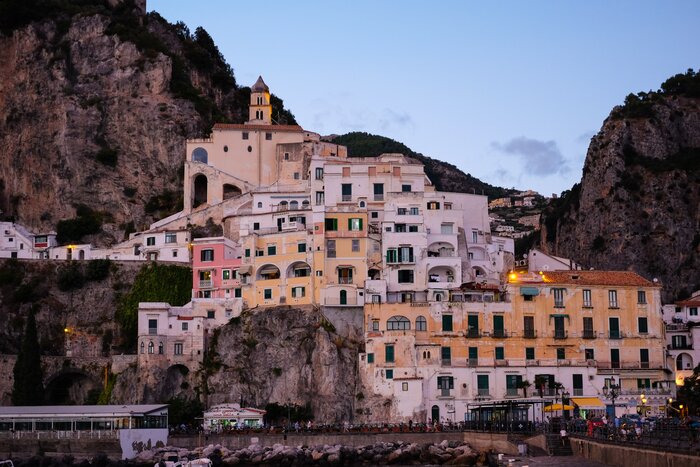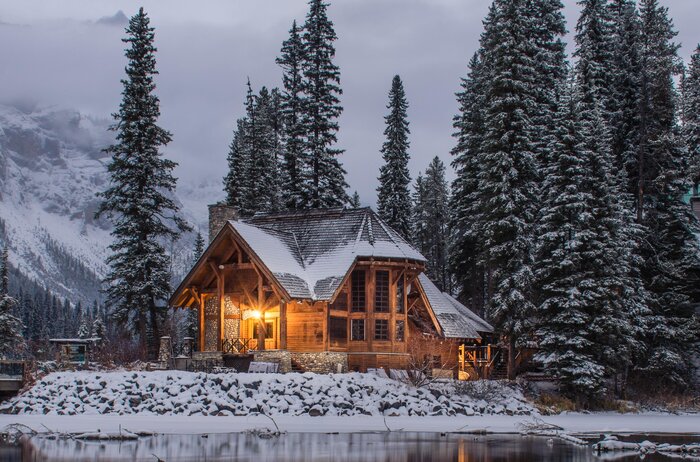Short-term Rental News Digest – July 2022

Not only are the temperatures rising in Europe and the United States, but also the vacation rental demand. Data shared this past month reveals that rural areas in the US are enjoying record occupancy rates. Much of this can be attributed to the renewed interest in outdoor stays.
While travelers in the US are flocking to campsites and treehouses, over in Europe, travelers are taking a keen interest in heritage travel. Whether you have a campsite or a castle, continue reading our digest below to find out more about the trending destinations and how you can protect your property.
Record Year for US Rentals Expected
AirDNA’s most recent report anticipates that the demand for short-term rentals in the US can increase by as much as 20% this year, especially in rural areas.
On the other hand, urban areas still have not managed to rebound completely, with occupancy levels in these areas still below 2019 levels. That being said, AirDNA expects that travelers from the UK and Canada will start to return to the US which will help larger cities, in particular.
What’s more, the occupancy rates for 2023 are expected to be higher too. While it won’t increase by as much as this year’s rates, AirDNA predicts that it will be up by about 3.4% next year.
Heritage Travel Making a New Comeback
According to data revealed by UNESCO, cultural tourism accounts for 40% of all global tourism, making it one of the fastest growing industries. Europe, in particular, is one of the top destinations for heritage-related travel.

Data shared by Airbnb has shown that bookings for historical homes have grown by more than 50% in the past two years in places like Italy, France, Spain, Germany, and the United Kingdom.
Some of the top trending cities include:
- Verbania and Etruscan Coast in Italy
- Stratford-on-Avon and Dumfries and Galloway in the United Kingdom
- Lanzarote and Guadalajara in Spain
To help travelers find and book a stay that will offer an authentic cultural experience, they have launched a new category — Historical Homes. Currently, there are nearly 20,000 heritage home listings in these five destinations. Included in this category are properties like castles and converted chapels.
Airbnb has also introduced a Heritage Academy. This program is currently available to hosts in Spain, Italy, and France and offers them a toolkit and personal Host Ambassador that will share recommendations and offer training to help them excel in this niche category.
Outdoor Getaways on the Increase
While heritage stays are growing in popularity across Europe, in the US, outdoor getaways are enjoying a high interest. Data shared by Airbnb reveals that bookings for various types of outdoor stays have increased by more than 50% since 2019. For example, campsite bookings are up by over 120% since 2019, with Orlando, FL being the most popular destination in this category.
Other top destinations include:
- Asheville, NC for cabin stays
- Gatlinburg, TN for treehouse bookings

Airbnb Shares Inclusion Resources for Hosts
Airbnb has announced that they will be launching a new resource for hosts — a Guide to Inclusive Hosting. This forms part of their ongoing commitment to creating an inclusive community where everyone will feel welcome.
This guide will include videos and educational articles that will teach hosts how to let travelers from all backgrounds, in particular those from historically marginalized communities, feel welcome. Moving forward, they have also pledged to add new resources continuously.
Party Ban Officially Included in Policy
Almost two years after Airbnb temporarily banned all parties and events in listings, they announced that they will officially codify it. Since it was implemented in August 2020, there was a year-over-year drop of more than 40% in the number of parties reported.
One change that they will make is to the occupancy cap. The temporary party ban capped occupancy at 16, but the updated policy will remove this cap. This means that hosts who have bigger properties that can house more than 16 guests comfortably and safely may do so. However, failure to adhere to the rules can lead to account suspension or full removal from Airbnb.
In addition to this “new” policy, the platform has introduced a number of other measures in recent years to help curb unauthorized parties. These include a 24-hour safety line, special holiday anti-party measures, and a Neighborhood Support Line. They’ve also partnered with Vrbo to share repeat US offenders’ information.
New Subscription-based Insurance Product Launched
InsuraGuest, an insurtech company, has introduced a new insurance product aimed at vacation and short-term rentals.
What makes this product so unique is that it will be available on a monthly basis as a subscription to rental owners in the United States. This means that it can be adjusted to meet the rental demand and hosts can even pass on the cost to the guest.
The product can be bought directly via their website and will include InsuraGuest’s no-fault medical coverage.






